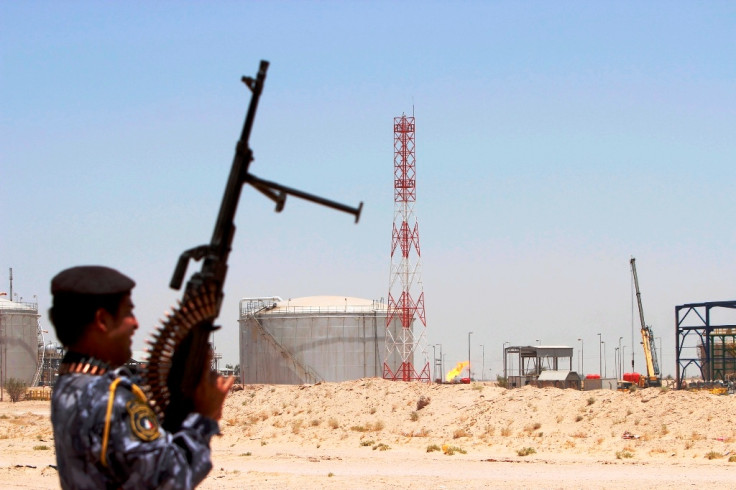Crude Futures Drop as Iraqi Oil Data Eases Supply Fears

Crude oil prices traded lower on 24 June after Iraqi oil exports data suggested supplies remained unaffected by the war in the nation, which is Opec's second-largest producer of crude.
Brent August contract was trading at $114.04 a barrel at 10:46 BST, after shedding 57 cents to $113.55 a barrel earlier in the day.
Prices have risen 2.9% so far in 2014.
WTI August contract was trading 92 cents lower to $105.25 a barrel.
Exports from Iraq's southern terminals, where most of the nation's oil is concentrated, averaged 2.53 million barrels per day (bpd) as of 21 June, 2014, according to shipping data and Reuters sources.
That reading compared with May's average of 2.58 million bpd -- the highest since 2003.
Commerzbank Corporates & Markets said in a note to clients: "Brent has shed nearly $2 from its peak [on 23 June] and for some of the time this morning has been trading at below $114 per barrel. Fears that the advance of the Sunni terrorist group ISIS in Iraq could result in disruptions to the Iraqi oil supply appear to be abating somewhat. According to loading data published by Reuters [on 23 June], oil exports from the south of Iraq averaged 2.53 million barrels per day in the first three weeks of June.
"This is only marginally less than in May, when 2.58 million barrels per day were achieved - the highest level since 2003. Against this backdrop, money managers are likely to take profits: they had previously played a major part in the price rise, as current market positioning data from the ICE revealed. Net long positions in Brent climbed by 19,400 to 223,000 contracts in the week to 17 June. On the reporting date, this put them only just short of the record level reached in late August 2013."
"Given that the Brent price continued to rise in the following days, this level is meanwhile likely to have been exceeded. The situation in Iraq will doubtless continue to influence prices. Following heavy fighting, Iraq's largest oil refinery in Baiji is allegedly under the control of the Iraqi armed forces again.
"If there is confirmation that [Isis] extremists will not be able to disrupt the oil supply, prices are likely to fall further. The ongoing uncertainty means that no sharp price slide is likely, however. In the next few weeks, we expect to see Brent trading at above $110 per barrel," Commerzbank added.
Asia Bond Yields
Standard Chartered said in a note: "The increase in global crude oil prices in the past two weeks (Brent is up c.5.7%) pushed Indonesian rupiah (IDR) bond yields higher by 13bps and Indian government bond (IGB) yields up by 20bps; and their benchmark 10Y bond yields breached the key levels of 8.10% and 8.70%, respectively."
"We have a Neutral outlook on IDR bonds and a Positive outlook on IGBs, but believe high oil prices pose a risk to our outlooks. The Indonesian government recently revised its 2014 fiscal deficit higher to 2.5% of GDP (from 1.7%).
"Political uncertainty has also increased; the latest surveys indicate that [Joko 'Jokowi' Widodo] and [Probowo Subianto] are equally likely to win the upcoming presidential election. In India, upside risks to inflation have resurfaced on high global crude oil prices and uncertainty about the monsoons," the British bank added.
© Copyright IBTimes 2025. All rights reserved.






















